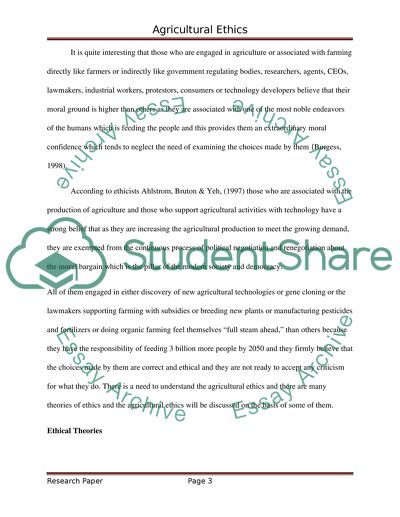Cite this document
(Agricultural Ethics Term Paper Example | Topics and Well Written Essays - 1250 words, n.d.)
Agricultural Ethics Term Paper Example | Topics and Well Written Essays - 1250 words. Retrieved from https://studentshare.org/agriculture/1614285-agricultural-ethics
Agricultural Ethics Term Paper Example | Topics and Well Written Essays - 1250 words. Retrieved from https://studentshare.org/agriculture/1614285-agricultural-ethics
(Agricultural Ethics Term Paper Example | Topics and Well Written Essays - 1250 Words)
Agricultural Ethics Term Paper Example | Topics and Well Written Essays - 1250 Words. https://studentshare.org/agriculture/1614285-agricultural-ethics.
Agricultural Ethics Term Paper Example | Topics and Well Written Essays - 1250 Words. https://studentshare.org/agriculture/1614285-agricultural-ethics.
“Agricultural Ethics Term Paper Example | Topics and Well Written Essays - 1250 Words”, n.d. https://studentshare.org/agriculture/1614285-agricultural-ethics.


